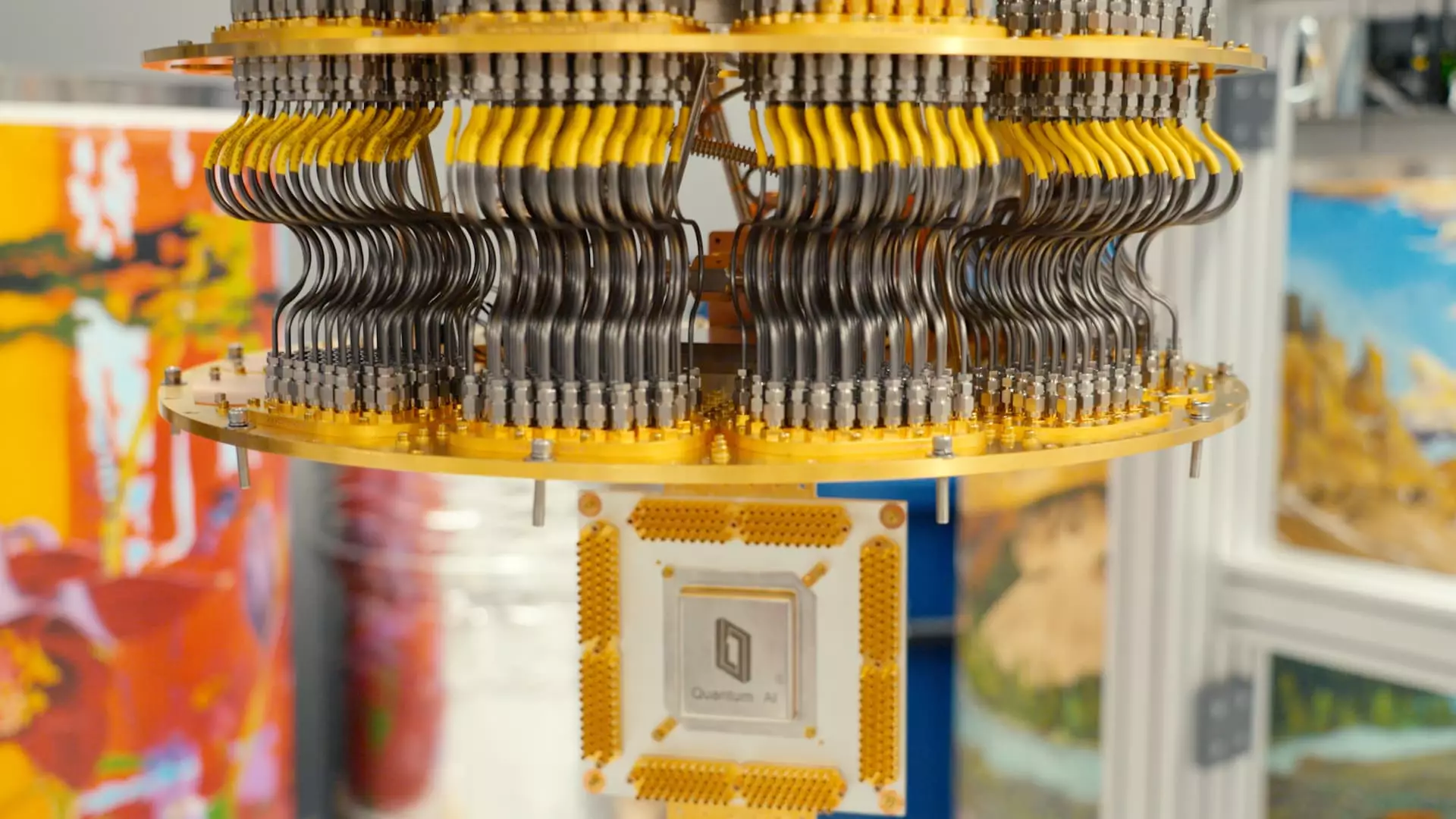Nestled within the discreet confines of Santa Barbara, California, a remarkable venture is unfolding. Alphabet, the parent company of Google, has embarked on a groundbreaking mission: to cultivate the world’s most sophisticated quantum computers. This initiative is not just another innovation; it represents a pivotal shift in how technology can redefine possible applications of artificial intelligence (AI) and quantum mechanics. Julian Kelly, director of hardware at Google Quantum AI, emphasizes an intriguing synergy potential between AI and quantum computing, suggesting that in the not-so-distant future, these two fields could enhance and accelerate each other’s capabilities in unprecedented ways.
Playing Catch-up in a Rapidly Evolving Landscape
Despite a reputation for trailblazing achievements, Google found itself in a reactive position against upstart companies like OpenAI, which captured the public’s imagination with the swift rise of ChatGPT in late 2022. The realization spurred Google into action, culminating in the unveiling of their groundbreaking quantum computing chip, Willow. This development is not merely a technological advance; it’s a bold statement of intent in a race where speed and accuracy are paramount. Willow’s ability to tackle benchmark problems at a pace that dwarfs classical computers signifies a potential new dawn for computing, one replete with possibilities and far-reaching implications for various sectors.
Innovating Beyond Limitations
What sets Google’s advances apart is their focus on practical applications. As AI models increasingly face limitations due to dwindling high-quality data, the introduction of quantum computing emerges as a beacon of hope. Kelly articulates the significance of this evolution; he proposes that quantum computers could be instrumental in generating new, high-quality data sets that sustain progress in AI. This transformative capability stands to remedy a pressing challenge in the AI landscape while simultaneously bolstering commission efforts.
The example of AlphaFold, an AI commissioned by Google DeepMind that has already garnered a Nobel Prize, is particularly illustrative. Its success stems from leveraging information rooted in quantum mechanics—an area not extensively tapped by conventional methods. With the advent of quantum computing, there lies the potential to expand the horizons of AI, allowing it to uncover insights that have previously remained elusive.
The Road Ahead: A Quantum Breakthrough
As Google navigates toward realizing the full potential of quantum computing, Kelly’s assessment—that a practical application could emerge in approximately five years—serves as both a challenge and a gauge for the industry. This timeline reflects the urgency of innovation and suggests a race not merely against competitors but against the limitations of current technological paradigms.
While the road to quantum supremacy is fraught with obstacles, the implications of success could be revolutionary, altering how humanity interacts with technology and data. Google’s foray into this space is not just an initiative—it’s a testament to the relentless pursuit of possibilities that lie at the intersection of quantum physics and artificial intelligence, promising to transform our ability to solve complex problems and expand our understanding of the universe. This visionary approach not only amplifies Google’s role in the tech sector but also sets the stage for a future where quantum and AI convergence can empower countless transformations in our world.


Leave a Reply